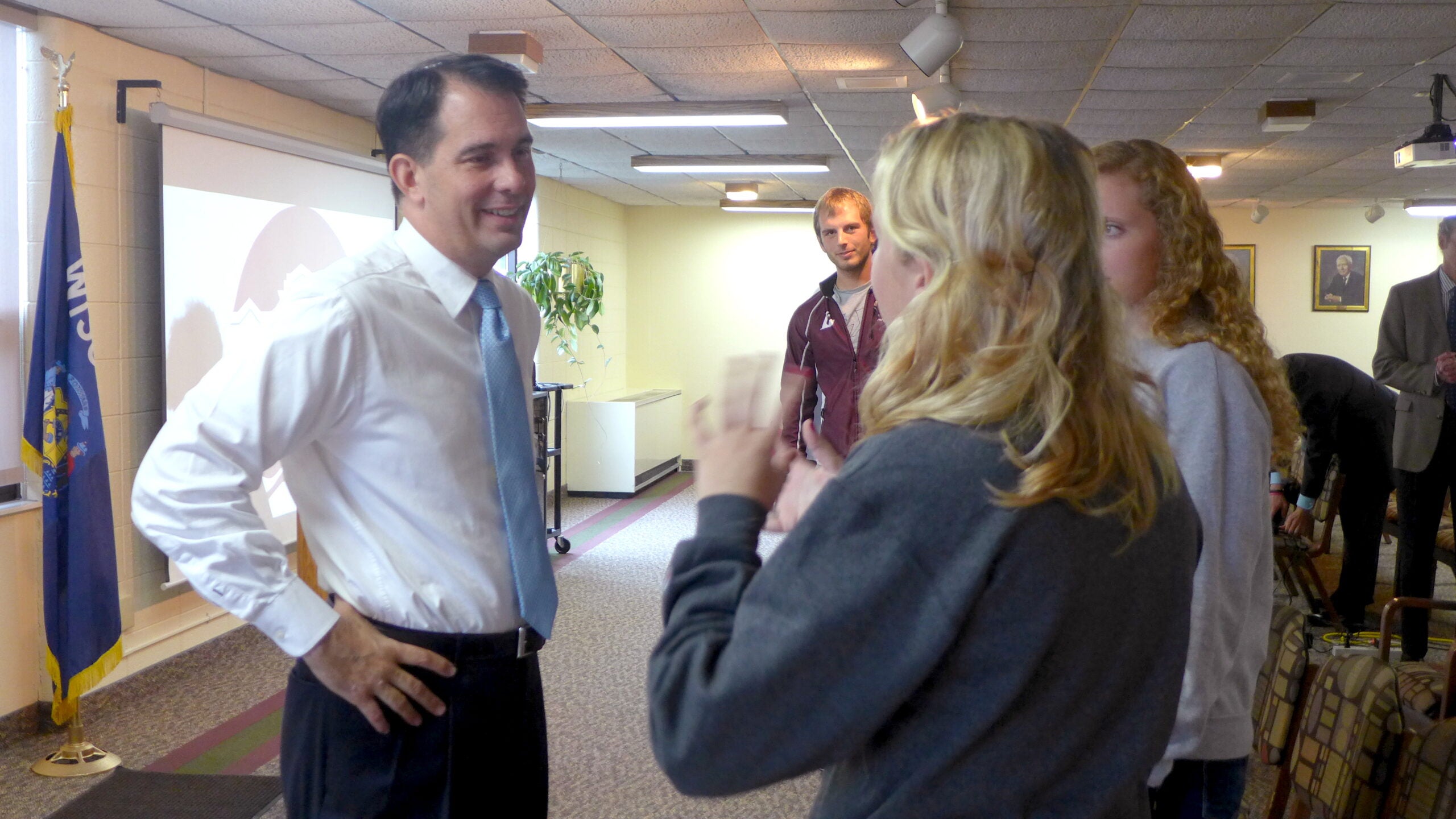Gov. Scott Walker has released an agenda for his second term that includes required drug testing for people receiving food assistance or unemployment benefits.
Much of Walker’s second term agenda covers familiar ground: property and income tax cuts, a continued tuition freeze at the University of Wisconsin System, and an extension of the freeze to the state’s technical colleges. The call for drug testing, however, is new, at least on this campaign. Walker would require the testing for all working age childless adults who receive food stamps or unemployment benefits.
Republicans already considered a similar requirement in 2011, but let it drop. Walker said employers want the change.
News with a little more humanity
WPR’s “Wisconsin Today” newsletter keeps you connected to the state you love without feeling overwhelmed. No paywall. No agenda. No corporate filter.
“Their biggest frustration is they can’t get enough people in the door that understand basic employability skills of showing up on time, putting in a full day’s work, how to deal with grievances and things of that nature, and they can’t get enough people that pass drug tests,” said Walker.
The proposal would likely run afoul of federal rules for food stamps or unemployment, though Walker said he thinks the state could prevail in a court challenge.
Walker’s Democratic challenger, Mary Burke, released her economic platform in March of this year. Burke campaign spokesman Joe Zepecki questioned why Walker was just releasing this agenda now.
“It strikes me as more of a political document, something for the campaign that’s designed to win votes, than it is a plan for his second term,” he said. “We have 49 days until people go to the polls, many fewer than that before people start voting early. So I think the question that voters should ask themselves is: Where has this been?”
Other Democrats were more critical of the governor’s drug testing proposal. Said U.S. Rep. Gwen Moore, “the insinuation that those battling poverty are somehow more susceptible to substance abuse is as absurd as it is offensive.”
Wisconsin Public Radio, © Copyright 2025, Board of Regents of the University of Wisconsin System and Wisconsin Educational Communications Board.







